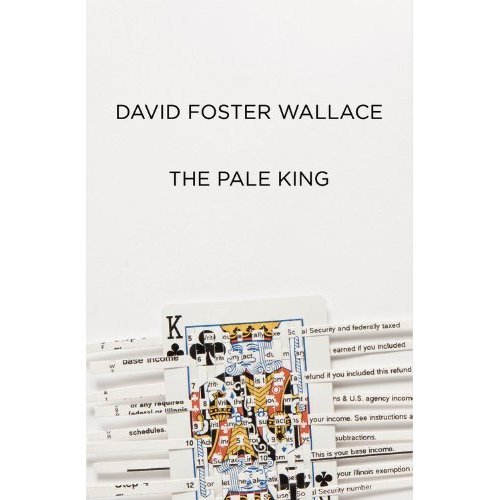There are two or three deeply compelling reasons not to read David Foster Wallace’s “The Pale King.”
First, it’s about life among agents of the Internal Revenue Service, and boredom is one of its primary themes. Second, it’s unfinished — Wallace’s editor and friend Michael Pietsch constructed it from thousands of pages of notes and drafts recovered from the writer’s home after he died in 2008. Third (or perhaps 2a), since the author’s writing is already so maddeningly hard to read, tackling this incomplete novel is a little like doing a Saturday crossword puzzle to which only the “Down” clues are available.
When you actually sit down with the thing, though, none of this matters. “The Pale King” represents Wallace’s effort, through humor, digression and old-fashioned character study, to present IRS agents — soulless bureaucrats in the mind of the American taxpayer — as not merely souled, but complexly so. He succeeds, profoundly, and the rest of the book’s intellectual content is gravy. Yes, parts are difficult, but “boring” never comes into it. And it’s very, very funny.
Wallace embodied all kinds of improbabilities. His second novel, “Infinite Jest” (1996), was a vast 1,104 pages, every one of them a smoke-coming-out-of-the-ears tug-of-war between the reader and the author — and it became a best-seller. He filled his theory-laden prose with humor of every description, high and low. His journalism was arguably as accomplished as his fiction. He was well-liked by his students at Pomona College (where he taught English) and the prickliest of fellow writers. (Richard Katz, a character in Jonathan Franzen’s “Freedom,” is in part a memorial tribute to him.) Three years ago in September, Wallace, after a lifetime of battling depression, hanged himself.
“The Pale King” follows the lives of several IRS auditors who work together in Illinois in the 1980s, among them Claude Sylvanshine, a “fact psychic” whose daily life is peppered with bits of unknowable personal trivia about the people around him that enter his mind unbidden; Lane A. Dean, Jr., who joins the IRS to support his infant son and wife, whom he married despite reservations; and a tremendously disagreeable twerp named “David Foster Wallace.”
The “Wallace” character presented to the reader is a small, catty brat who is very much into himself. But this Wallace (the anti-Wallace, as the writer was, by all accounts, a nice guy) is at his witty best when making uncharitable observations about fellow IRS employees. He’s also a gentle poke at the reader’s own self-regard, especially when Wallace (the real one) confronts us with a story that gives a bird’s-eye view of one character’s complicated, difficult life after “Wallace” (twerp) has belittled him.
Ultimately, it’s the digressions that really stick with you. A philosophical exchange among at least three men in a stalled elevator has some of the book’s best and most trenchant observation in it; another section follows in perfect detail the conflicting desires that tear apart a young evangelical who has gotten his girlfriend pregnant. Wallace possessed an astonishing ability to mimic trains of thought with prose if we can grapple with it long enough.
In these asides, the fact of Wallace’s death hits like a slap. “Maybe dullness is associated with psychic pain because something that’s dull or opaque fails to provide enough stimulation to distract people from some other, deeper type of pain that is always there, if only in an ambient low-level way, and which most of us spend nearly all our time and energy trying to distract ourselves from feeling, or at least from feeling directly with our full attention,” he writes, as “David Wallace.” Ouch.
“The Pale King” is more a collection of vignettes than a continuous narrative. But Wallace, whose memory will forever be associated with his bullet-stopper of a second novel, structured his short stories with such toppling, kinetic brilliance that many of them resolved on the final sentence, some on the final word. After a few of the beautiful character studies in “The Pale King,” you yearn for a genuine Wallace barnburner, and perhaps those phantom pages of unwritten punch lines and imaginary denouements comprise the truest monument to Wallace’s literary genius. He hid his climaxes in dream sequences and anecdotal non sequiturs; the climax to “The Pale King,” devastatingly, is hidden in the grave.
Copy the Story LinkSend questions/comments to the editors.



Success. Please wait for the page to reload. If the page does not reload within 5 seconds, please refresh the page.
Enter your email and password to access comments.
Hi, to comment on stories you must . This profile is in addition to your subscription and website login.
Already have a commenting profile? .
Invalid username/password.
Please check your email to confirm and complete your registration.
Only subscribers are eligible to post comments. Please subscribe or login first for digital access. Here’s why.
Use the form below to reset your password. When you've submitted your account email, we will send an email with a reset code.